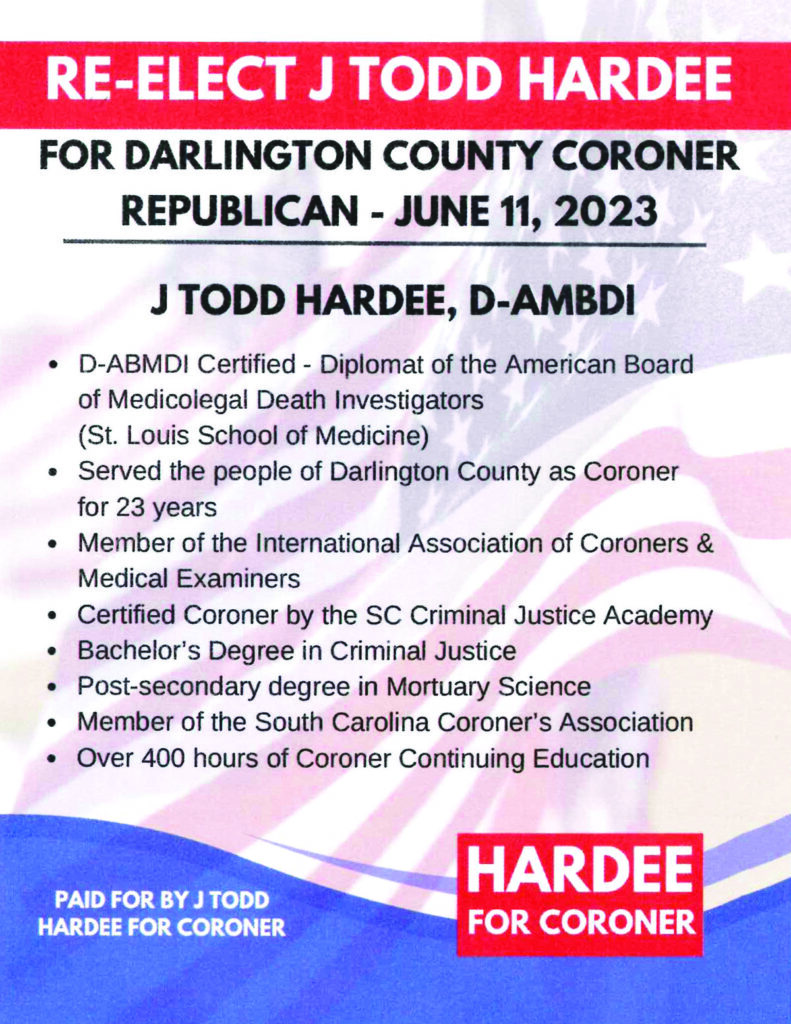Unlocking the mysteries of teen angst

By Samantha Lyles, Staff Writer, slyles@newsandpress.net
If you’ve ever dealt with a stubborn, grouchy, or hyperemotional teenager or adolescent, you may have asked yourself, “Why are they behaving like that?” Author and teacher Dr. Dave Walsh provided some insight on that topic during a speaking engagement June 5 at Hartsville’s Butler Heritage Foundation, an event presented by Darlington County First Steps and the South Carolina Campaign to Prevent Teen Pregnancy.
Walsh is one of the leading voices on matters of children, parenting, and family life. He is a faculty member at the University of Minnesota, and the author of numerous books – including one titled “Why Do They Act That Way?” – that tackles the science behind teen angst.
During his address at Butler, Dr. Walsh explained that although the external factors of each kid’s life can vary greatly, their internal struggles are nearly universal. He points out that the cerebral cortex, the brain’s CEO that handles planning, risk assessment, and impulse control, is still under construction during youth and does not fully mature until an individual reaches their mid-twenties.
“The adolescent brain has the gas pedal to the floor with the brakes on back order,” said Walsh.
This precarious situation is largely fomented by hormones, fifty different chemical messengers secreted by a dozen glands, all coursing through the adolescent’s brain and provoking unrest. That unrest can take the form of mild surliness or dramatic outbursts, depending on the individual.
Walsh first outlined the role of hormones –
specifically the vital male hormone testosterone – in boys, noting that with the onset of puberty, massive surges of testosterone can occur seven times per day. Since the cerebral cortex is ill equipped to handle these surges, a lot of testosterone winds up in receptors located in the amygdala, a little almond-shaped brain bit that plays a key role in processing emotions, especially fear response and aggressive behavior.
When testosterone surges, Walsh says a young male’s brain is unable to rationalize his emotional responses, so he could shut down and withdraw from company, make impulsive and irrational decisions, or be easily provoked into fighting. Testosterone surges also cause a heightened, sometimes embarrassingly persistent, interest in sex.
In young females, the hormonal onslaught comes from two messengers: serotonin (a mood stabilizer) and dopamine (which promotes emotional bonding). Walsh says these chemicals can cause girls to feel overwhelmed by small crises – finding no milk in the refrigerator, or being unable to locate a favorite pair of pants – and they can exaggerate the depth of emotional connections in friendships or romance.
Walsh shared a story from a male student who recognized the role of hormonal flux in his teen behavior. The boy had ceased participating in family activities and preferred to spend time alone in his room, citing that he was angry all the time and didn’t want to be around people. When his mother questioned him about his behavior, the boy answered in a most hurtful way.
“He told her, ‘Mom, I just don’t like you,’” said Walsh, adding that the student planned to call his mom, share what he had learned, and apologize.
Dealing with adolescents and teenagers who are barraged by neurochemical impulses is no easy road, but Walsh recommends early preparation for this difficult journey.
He notes that when a child is born, only 17-percent of the brain’s 100 billion neurons are pre-wired, meaning there are 1,000,000,000,000,000 possible configurations available. That’s a quadrillion chances to set associations, patterns of behavior, and countless crucial qualities that can help a child survive and thrive.
“The neurons that fire together, wire together,” said Walsh. “Whatever the brain does a lot of is what it gets good at.”
So if a baby learns that crying out in distress prompts a parent to hold them close and soothe their fears, they may be more apt to trust parents during their teen traumas. Conversely, a baby who cries for help and receives hostility or is ignored learns that no one cares about their pain, and that child may be more likely to suffer through adolescence in silence, or to recklessly act out.
Walsh says parents who are present, attentive, attuned, and responsive can give a child a great head start on emotional health, and can provide steady guidance until the youth’s cortex fully matures and allows them to self regulate.
To learn more about Dr. Walsh, visit his website at www.drdavewalsh.com



